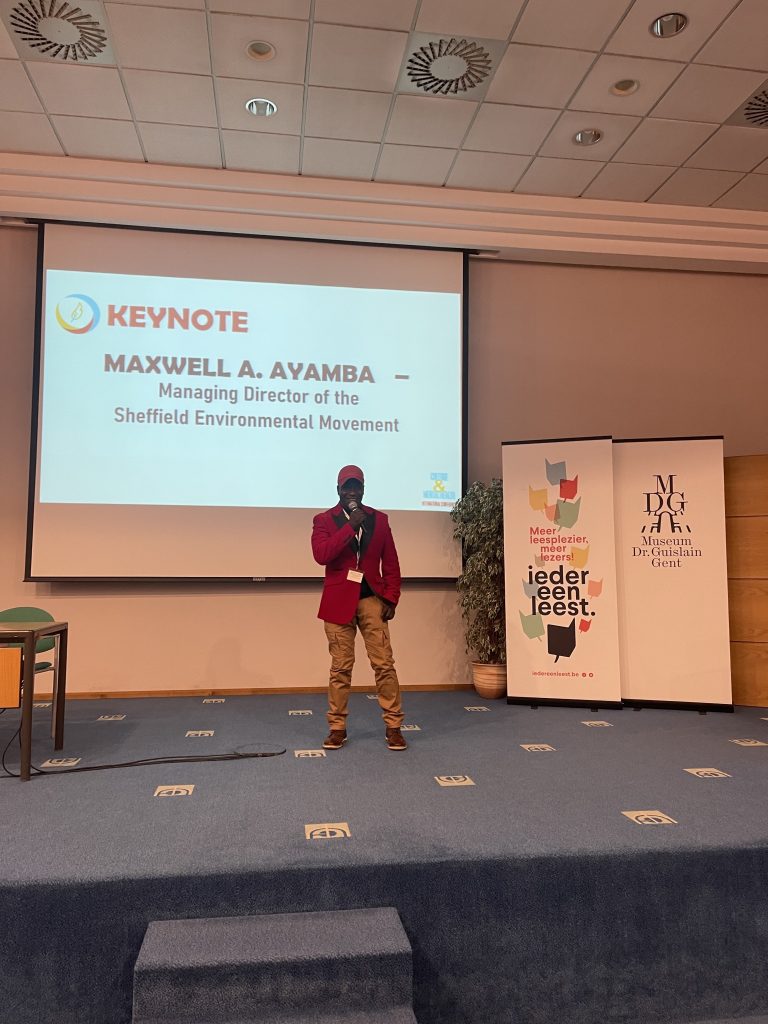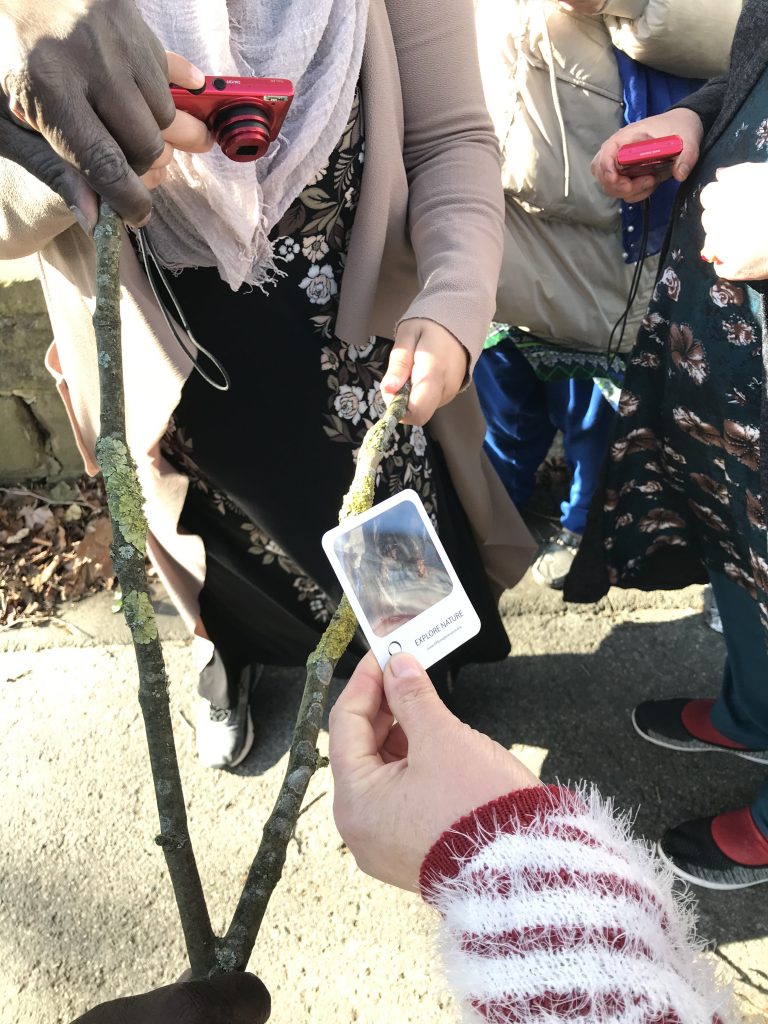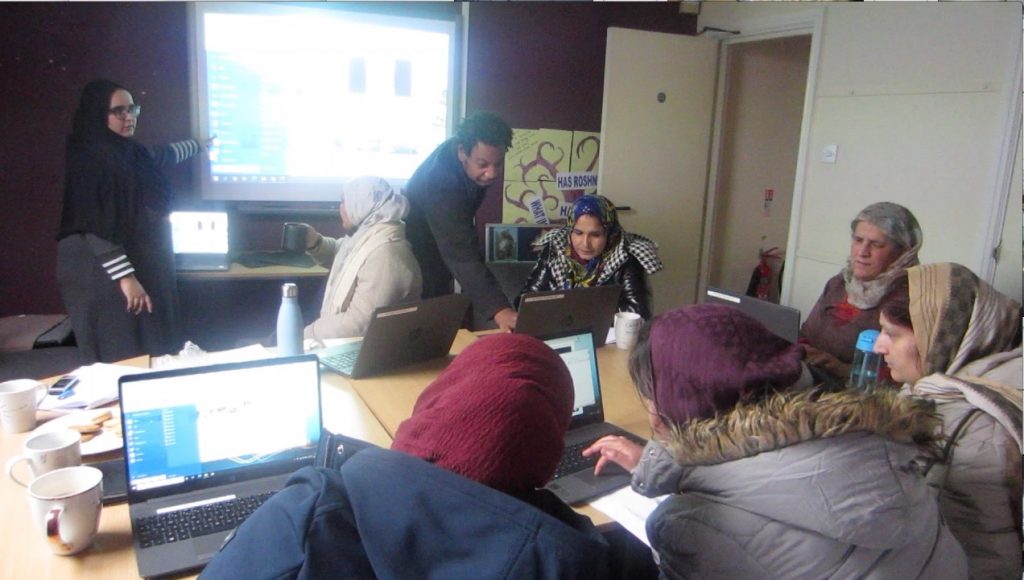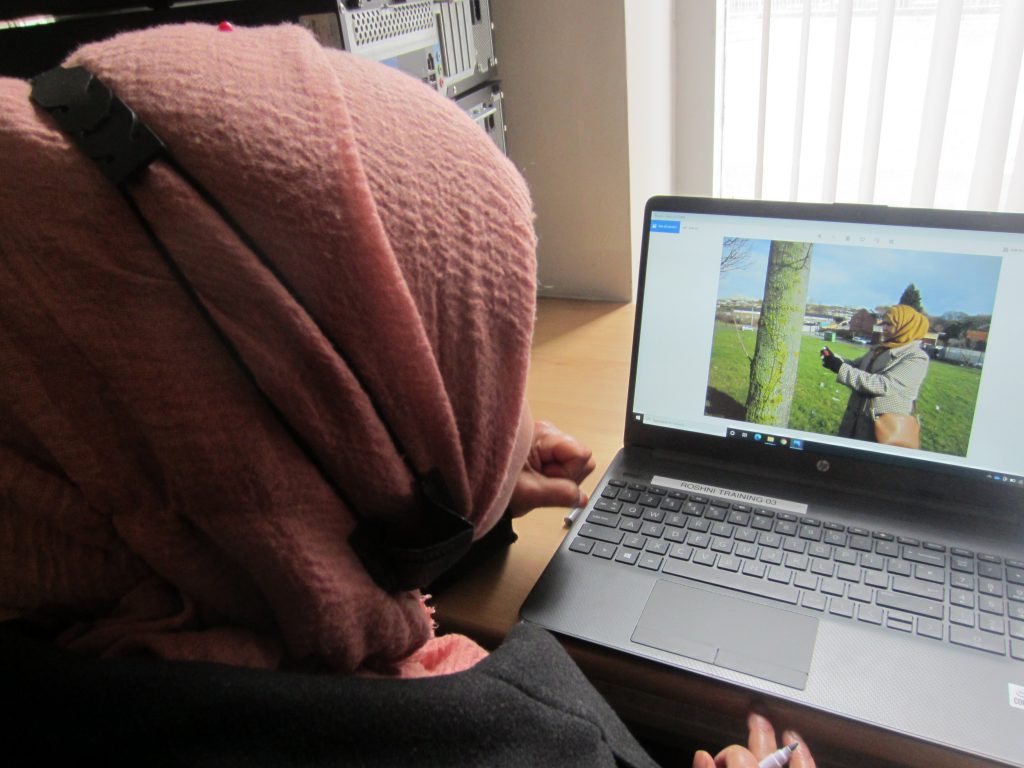SEM’s Founder/Managing Director gave a keynote at the Culture & Mental Health international conference 23rd – 25th November 2022. It was organised by the Dr. Guislain Museum and Lederseen Leest in cooperation with University of Ghent Social Work and Social Pedagogy, University College London Arts and Science and Ghent University Library. The conference was attended by over 300 practitioners, community activists and academics across Europe. Dr. Han Kluge, World Health Regional Director for Europe who opened the conference underlined the importance of nature conservation to our health and wellbeing considering current state of nature deficit impacting on people’s mental and physical wellbeing. He noted the world is facing serious climate crisis which is having an impact in communities and the need for practitioners across Europe to work together to share good practice taking place in communities.

Maxwell Ayamba in his keynote spoke about nature deficit as a problem among minoritised communities in England and how SEM is using the OPAL Explore Nature Citizen Science to engage with marginalised communities to reconnect with nature in Sheffield.
He explained that SEM works with Black, Asian, Minority Ethnic, and Refugee communities to promote social and environmental justice. Maxwell described how SEM developed a sci-art walking project to explore natural indicators of air pollution in and around Sheffield. Commencing with COVID-19 restrictions still in place, Maxwell initiated the project with an online presentation about air pollution, including its potential impacts on health. This was followed by a face-to-face workshop introducing the OPAL tools which monitor air pollution (https://www.imperial.ac.uk/opal/surveys/airsurvey/) and in-person group walks to both inner city areas of Sheffield (Darnell and Sharrow), and to the Peak District National Park.

OPAL tools offer a framework for measuring air pollution, with nitrogen-tolerant and nitrogen-sensitive lichen functioning as bioindicator systems. Supported by Jenson Grant, SEM’s Media/Digital consultant, they worked with ROSHNI (Southeast Asian Women Community group) group using digital cameras and audio recorders to capture their experiences of walking together and being in both familiar and unfamiliar environments.
Jenson and Maxwell then collaborated with the women to digitally manipulate, edit, and compile documentation, creating a collaborative multi-media record of their project comprising titles, audio-recordings, still photos, and video. The artwork created by the women foregrounds the tactility and hapticity of their walking, of getting to know an environment through careful looking (the artwork presents a rich collage of shadows, shapes, textures and longer views), and touching (hands holding branches and cradling soft mosses). The conviviality and collaboration of the group walk is foregrounded in the work too, with a branch held by someone so that someone else can take a photo, playfulness captured in a spray of water, and an ensemble of women gathered atop a slab of granite, their stories visibly circulating amongst each other.
The audio segments relate the resonances of distant homes in strange(r) landscapes, bringing the latter closer and making them more familiar in the process – “It brings back [a] memory of home”, says one of the women. Words in English, such as ‘plant’, are given their Urdu and Punjabi equivalents, recentring and valuing the women’s knowledge. We show the women enacting skills of scientific observation, holding magnifying tools to identify lichen and determine pollution levels, with audio cameras in hand to record their experiences, and later, computers to create the collaborative artwork. Also brought into focus are their observations and insights on the different environments they inhabited, with the Longshaw Estate perceived as having fresher air than experienced in the urban environments in which they live.

This innovative sci-art approach addressed many of the challenges identified, using walking to create a convivial, safe space, which enhanced social connectivity between a group of women. It increased the women’s knowledge of their environment and empowered them by reinforcing and extending the knowledge they already hold in new environmentally-focused directions. While walking and accessing green spaces have been shown to have demonstrable health benefits, vitally important in this work was the explicit acknowledgement of health and environmental inequalities, the two often implicated. The walks in Sheffield’s urban environments oriented the women to the ‘nature’ on their doorstep. Using the OPAL toolkit also, however, enabled those women to ‘read’ the signs emitted by ‘nature’ regarding levels of pollution in the city air – the air which they breathed. Walking further afield, in the Longshaw Estate, introduced the women to a new area, possibly building confidence in accessing that space through both the visit and the subsequent creation of artwork documenting it which served to explicitly write the women into the landscape.
Notably, all the signs at Longshaw are only in English, and both Maxwell and Jenson noted how important it was to have a translator as part of the project. At the same time, having developed the knowledge to interpret the lichen signals the women understood that this space, further away from Sheffield and where they live, was demonstrably healthier. Similar to access to green space, experience of air pollution is also stratified. Air pollution is largely an urban problem and neighbourhoods with the highest air pollution levels are also the most ethnically diverse. Placing walking, environment and health into this wider context of environmental inequity is to insist on the politics at stake in ‘just walking’, holding together the acknowledged multiple benefits and vastly different experiences of walking. While walking is demonstrably good for health, this persistent message disguises the reality that not all walks are equal, and in areas of high pollution – toxic environments – the benefits of walking are perhaps more circumspect.

In this walking-with work, the women may become empowered not only to walk more, but to be part of a wider movement which insists on healthier local environments in which everyone can walk and take pleasure. While walking delivers personal benefits, ‘just walking’ gestures towards the need to connect walking campaigns to wider campaigns of environmental equity, pressing for systemic and structural changes which will support more people to access the pleasures and health benefits of walking towards equity and social justice.
The International Conference Culture & Mental Health 2022 was hosted by Dr. Guislain Museum and Iedereen Leest in co-operation with University Ghent Ghent Social Work and Social Pedagogy, University College London Arts and Science and Ghent University Library.